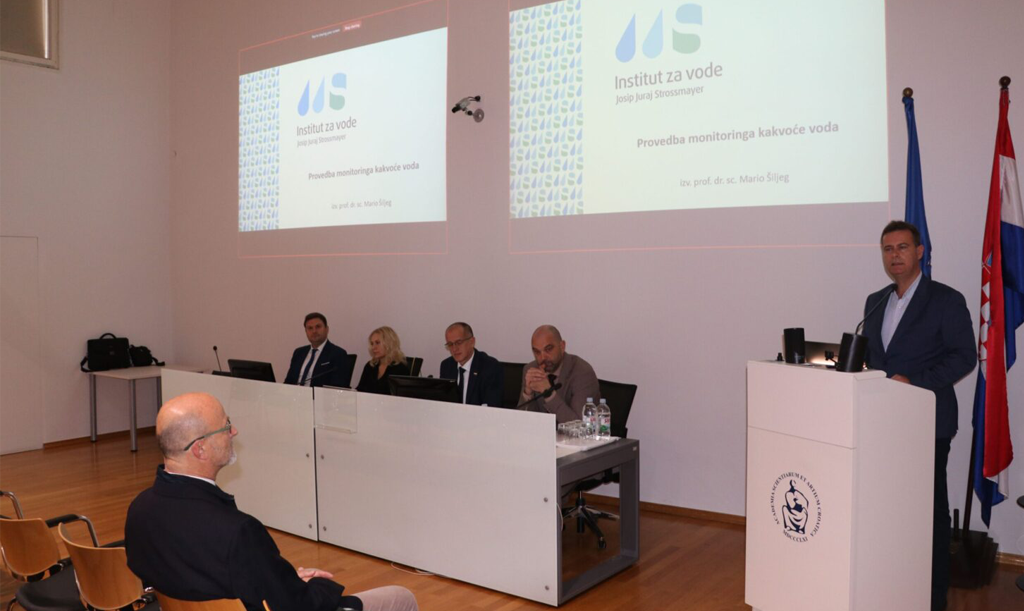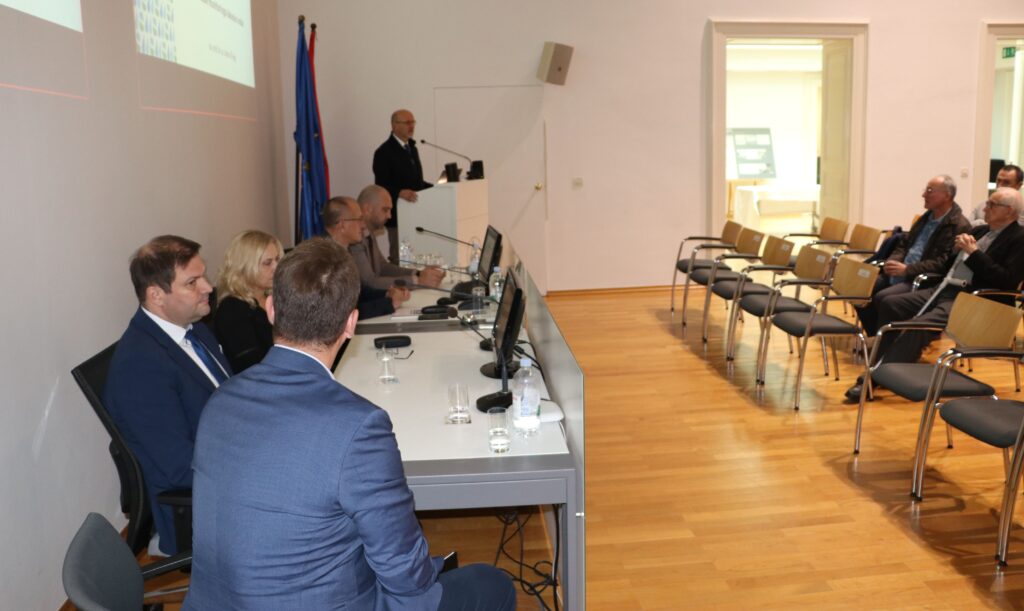CASA on the European Green Deal and water management in Croatia


As part of the European Green Deal, an important strategic development document of the European Union that aims to achieve climate neutrality and a clean, circular economy by 2050, an action plan was adopted to promote the efficient use of natural resources, the conservation and restoration of biodiversity and the reduction of pollution of all environmental components, especially water.
In this context, changes to existing European directives on water management have been proposed, as ex-post evaluations and assessments of the suitability of existing legislation and practises in EU Member States indicate a lack of integration of water-related objectives and insufficient investment by Member States in water management projects and programmes. Considering the expected changes in water management and the main challenges that the Republic of Croatia will face in the upcoming period, a round table discussion was organised by the Croatian Academy of Sciences and Arts (CASA) on the topic “The scientific basis for the implementation of the key strategies of the European Green Deal in the water legislation of the Republic of Croatia”.
The participants of the round table included: Associate Professor Dr Mario Šiljeg, the Director of the Josip Juraj Strossmayer Water Institute, Dr Snježana Herceg Romanić from the Institute for Medical Research and Occupational Medicine, Dr Siniša Širac from Croatian Waters and Associate Professor Dr Dražen Vouk from the Faculty of Civil Engineering at the University of Zagreb.
Director Šiljeg emphasised the importance of monitoring carried out by the Water Institute as an important prerequisite for establishing effective protection measures and achieving good water status. By giving a kind of overview of the monitoring results of recent years, he pointed out trends in the quality of our rivers, lakes, groundwater and coastal waters. He identified the persistently high concentrations of nitrogen compounds such as total nitrogen, nitrates and ammonia in surface waters, which are mainly due to the inadequate application of artificial fertilisers in agriculture, as well as the exceeding of permissible levels for certain polycyclic aromatic hydrocarbons resulting from the combustion of organic substances in households or industry, as major challenges.
As far as the state of groundwater is concerned, he presented alarming data on the waters of the Neretva due to the exceeding of the limit values for chlorides. This is a consequence of the increasingly pronounced climate change, manifested in this case by the rise in sea level, and the uncontrolled continuation of the construction of hydropower plants in the Republic of Srpska, including the diversion of water from the Neretva basin to the Trebišnjica basin.
Director Šiljeg also spoke about the role of the Institute as a national educational institution in the field of water management and the development of several curricula, emphasising in particular the willingness and need for cooperation with the Croatian academic community in this field.
The roundtable participants emphasised that achieving new, more stringent targets in water management will be a key challenge in securing significant financial resources. They emphasised the need to raise public awareness of the use of available technologies, including thermal treatment methods, when it comes to sewage sludge from wastewater treatment plants.


